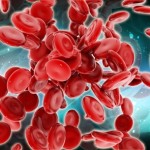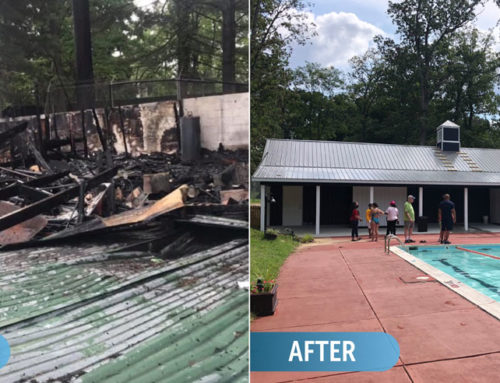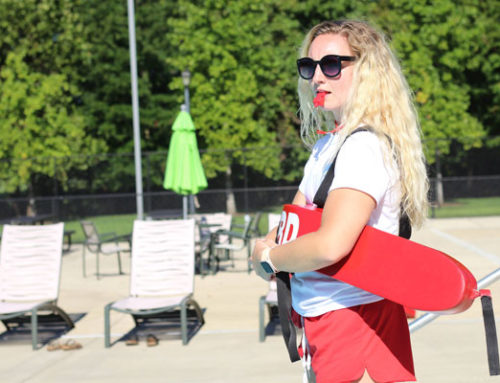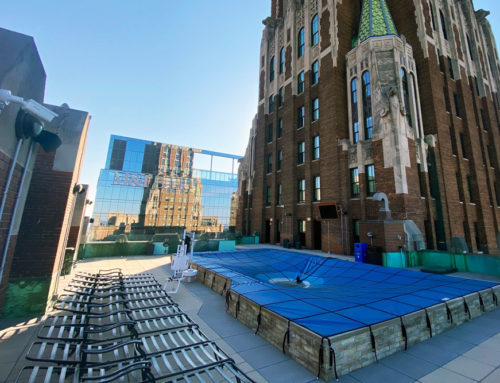
A high school swim team member in Wisconsin insists on not being defined by her status as leukemia survivor.
Managers who need fitness club pool services may attract diverse client bases. Patrons may come from different cultural backgrounds, professions or communities, but they all work out with the goal of improving physically and mentally.
Physical activity can prove especially cathartic and therapeutic for people who have survived life-threatening illnesses. In Baraboo, Wisconsin, high school freshman Melissa Munneke was the youngest member of her swim team to participate in the Wisconsin Interscholastic Athletic Association Division 2 state meet in Madison. As someone who lived with childhood acute lymphoblastic leukemia, Melissa insists on living the rest of her life without being defined by her experience with the disease, as reported by Wisconsin Prep Zone.
‘You’re no longer the kid with leukemia’
Melissa’s relationship with water hasn’t always been so smooth. She began racing at the age of 7, but according to her parents, she was so nervous her first race that her coach had to push her into the water. However, any aspirations she had for the sport had to be put on hold when, less than a year after she started racing, she was diagnosed with ALL.
According to the National Cancer Institute, a division of the U.S. National Institutes of Health, ALL is the most commonly diagnosed malignant disease among children, accounting for about one-fourth of all cases of pediatric cancer. Initial symptoms include fever, easy bruising, pain in the joints and bones, and loss of appetite.
For the next 2.5 years, Melissa’s family had to make frequent trips to American Family Children’s Hospital in Madison so she could receive treatment. There were times she was so weak that she needed to be carried in and out of the family van. Overall, she endured 21 lumbar punctures to infuse chemotherapy into her spinal fluid, as well as 42 deep intramuscular injections of medication. In 2010, Melissa was declared cancer-free.
“I think she chooses to forget, which is a good thing,” mother Shari Munneke told the news source. “She doesn’t want any pity. Never has. And she doesn’t want to be defined by it. I think that was a really important thing that the nurse practitioner taught us. She said, ‘OK, you’ve been sick, but now you’re done with chemo. It’s May 8, 2010. You’re no longer defined by your disease; you’re no longer the kid with leukemia.'”
Munneke still pays annual visits to American Children’s Hospital for routine checkups. In preparation for the WIAA Division 2 state meet, her parents realized that the driving route would pass by the facility, and they decided to go another way so as not to remind Melissa of her medical battles. However, as the family got closer to their destination, Melissa insisted on passing by the hospital because it was the fastest route. Her parents found it refreshing to pass by the hospital without having to turn into its parking lot.
Additionally, before the heading to the meet, Baraboo High School swim coach Lynn Keeling wanted to share an anecdote about Melissa’s battle with ALL during a pep rally on campus. Melissa initially said yes, but changed her mind because she didn’t want to stand out from the rest of the girls. As the third leg of the 200-yard medley relay, she insisted on shining no brighter than her teammates.
Exercise remains important
According to Cure Search for Children’s Cancer, exercise remains an important aspect of healthy living for pediatric cancer patients who are medically able to engage in physical activity, including swimming. However, for children who require central lines or ports to receive medication through their skin, it’s essential to stay out of the water until the wound has healed.
Also, if you’re aware of any patrons who are dealing with medical issues, improve your pool maintenance to keep the water properly sanitized.





